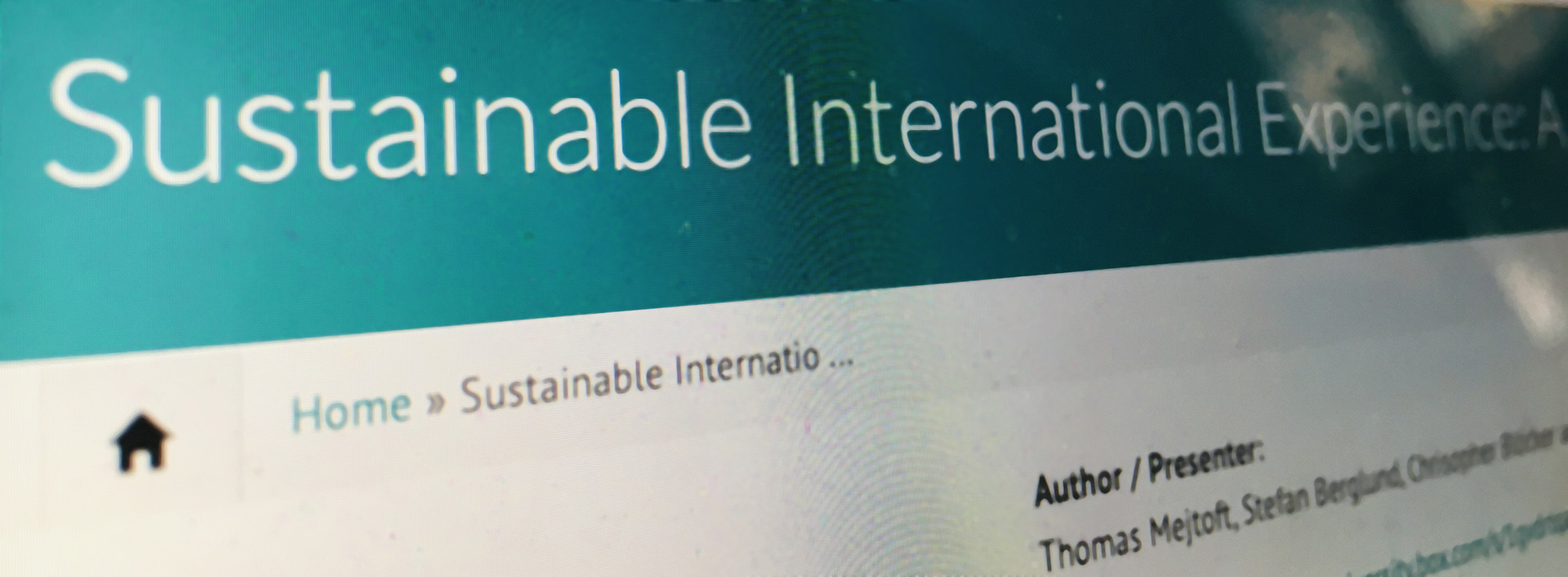The CDIO conference in Bangkok, Thailand, in June this year have, of course, been cancelled due to the Covid-19 pandemic. However, the conference has been carried out online and with Helen Cripps, Stefan Berglund and Chris Blöcker, I have a paper on online collaboration at the conference. The paper entitled Sustainable international experience: A Collaborative teaching project has been presented and published online today and it’s all under an Open Access (CC) license for you all to read! The paper will be available in the conference proceedings later on.

Read the short presentation from June 9, 2020.
This paper is even more important today with the global lockdown and it illustrates how we can give our students international experience without having to travel abroad.
Abstract:
Within engineering education there is an increasing need for providing our students with international experiences. This is most often done by exchange studies abroad. However, a majority of the students on engineering programs do not engage in any international exchange. This paper presents insights from a collaborative cross-disciplinary international project with the aim to give students international experience without having to travel. From both a sustainability perspective and a situation where e.g. a global virus outbreak stop students from travelling, solutions that give engineering students experience of working in an international setting are becoming increasingly important.
Initial challenges, for the teachers involved in the project, that were addressed before the project started, included the assessment of students, the use of online collaborative tools, assessment of students and the dependence between the two courses. The learnings from the first and second iteration of the collaborative project where mainly focused around transparency, introduction of students to each other, communication, real-time issues and deadlines. By gradually remove these peripheral challenges for the students, resulted in making the students focus on the actual challenges surrounding the actual collaborative project.
Even though this project is ongoing, the initial results clearly show that by integrating courses between different countries and disciplines, it is possible to create an environment that strengthen the students’ ability in teamwork, communication and addresses the cultural and professional aspects of working as an engineer in an international context.
Cite as:
Mejtoft, T., Cripps, H., Berglund, S., & Blöcker, C. (2020). Sustainable international experience: A collaborative teaching project. Proceedings of the 16th International CDIO Conference.
